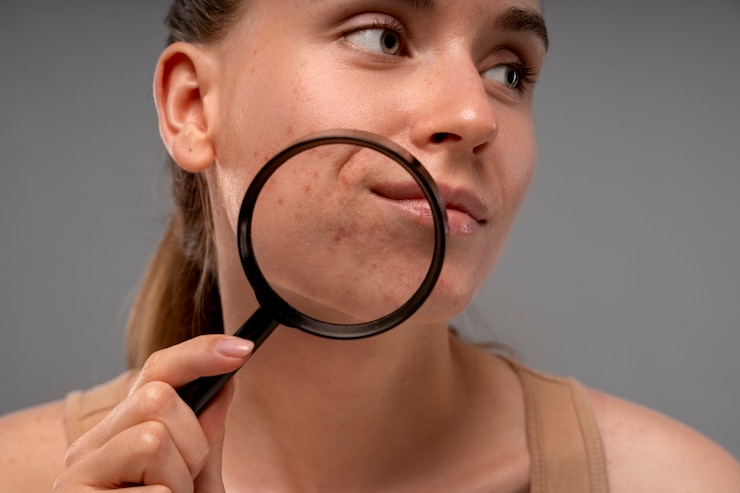Acne is a common skin condition that affects millions of people worldwide, often leaving behind not only persistent blemishes but also scars that can impact self-esteem and confidence. Many individuals seeking solutions for their skin concerns often wonder whether acne treatments are effective in addressing not just active breakouts but also the residual scarring. This comprehensive guide explores how Acne treatment in Abu Dhabi and similar locations can help improve the appearance of acne scars, the types of treatments available, and what realistic expectations you can set for your skin’s recovery.
Understanding Acne and Its Impact on Skin Appearance
What Is Acne and How Does It Develop?
Acne is a skin condition that occurs when hair follicles become clogged with oil, dead skin cells, and bacteria. It primarily manifests as pimples, blackheads, whiteheads, and cysts, typically appearing on the face, chest, and back. While active acne can be distressing, the aftermath—acne scars—can be even more challenging to manage.
The Formation of Acne Scars
Acne scars develop when inflammation damages the skin’s deeper layers, leading to abnormal collagen production during healing. This results in permanent textural changes, such as depressions or raised areas on the skin. The severity of scars depends on the type of acne, its duration, and individual skin healing processes. Recognizing the nature of scars is essential in choosing the appropriate treatment approach.
The Role of Acne Treatment in Managing Scars
Can Acne Treatments Reduce or Eliminate Scars?
While the primary goal of acne treatment is to control active breakouts, many therapies can also improve the appearance of existing scars. It’s important to understand that Acne treatment and other locations often include modalities specifically targeting scars, complementing traditional acne therapies.
How Do Acne Treatments Help with Scarring?
- Preventing Further Scarring: Effective management of active acne reduces the risk of new scars forming.
- Stimulating Skin Regeneration: Certain treatments promote collagen production, encouraging the skin to heal more evenly.
- Resurfacing and Remodeling: Procedures that remove or resurface damaged skin layers can diminish scar visibility.
- Smoothing Skin Texture: Techniques that improve skin elasticity and surface smoothness can significantly enhance overall skin appearance.
Realistic Expectations
It’s crucial to note that complete removal of scars might not always be possible, especially with deep or severe scarring. However, significant improvements are achievable with appropriate treatment plans, leading to smoother, clearer skin.
Types of Acne Scars and Suitable Treatments
Common Types of Acne Scars
Understanding the scar type helps determine the most effective treatment:
- Atrophic Scars: Depressed scars, including boxcar, icepick, and rolling scars.
- Hypertrophic Scars: Raised scars caused by excess collagen.
- Keloid Scars: Overgrown scars that extend beyond the original wound.
Treatments Targeting Acne Scars
Topical Treatments
- Retinoids: Promote cell turnover and collagen synthesis, improving skin texture.
- Chemical Peels: Remove the outer damaged layers to reveal fresher skin underneath.
- Silicone Gels and Sheets: Help flatten hypertrophic and keloid scars.
Minimally Invasive Procedures
- Microneedling: Stimulates collagen production by creating micro-injuries in the skin, effective for atrophic scars.
- Laser Resurfacing: Uses focused light energy to remove damaged skin layers and promote regeneration.
- Dermal Fillers: Temporarily plump up depressed scars for a smoother appearance.
Surgical Options
- Subcision: Breaks down fibrous bands causing rolling scars.
- Punch Techniques: Excise or lift icepick scars for better skin contour.
Combining Treatments for Optimal Results
Often, a combination of therapies yields the best outcome. For example, a patient may undergo microneedling combined with chemical peels or laser treatments to target different scar types effectively.
Customized Treatment Plans for Acne Scar Reduction
Importance of Professional Consultation
Each individual’s skin responds differently, making personalized treatment plans essential. Consulting with a qualified skincare professional helps determine the most suitable options based on scar type, skin tone, and overall skin health.
Factors Influencing Treatment Success
- Scar Severity and Type: Deeper scars may require more intensive interventions.
- Skin Type and Color: Certain treatments are more effective or safer depending on pigmentation.
- Lifestyle and Skincare Routine: A consistent skincare regimen supports treatment outcomes.
Post-Treatment Care and Maintenance
Following procedures, adhering to recommended skincare routines enhances results and reduces the risk of new scarring. Sun protection, hydration, and gentle products are vital components of ongoing skin health.
Advances in Acne Scar Treatment Technologies
Innovative Approaches
Recent advancements offer less invasive, more effective options:
- Fractional Laser Technology: Targets specific skin layers, promoting collagen without extensive downtime.
- Radiofrequency Devices: Use heat to stimulate collagen growth.
- Platelet-Rich Plasma (PRP): Enhances healing and regeneration when combined with other treatments.
- Radiofrequency Microneedling: Combines microneedling with radiofrequency energy for deeper collagen stimulation.
The Future of Scar Management
Emerging therapies aim to enhance skin remodeling, reduce downtime, and improve aesthetic outcomes. Ongoing research continues to refine these techniques, making scar treatment more accessible and effective.
Combining Acne Management and Scar Treatment for Comprehensive Skin Care
Integrated Approach
Addressing active acne and scars simultaneously ensures comprehensive skin health. Controlling inflammation and breakouts prevents new scars, while targeted treatments improve existing scars.
Lifestyle and Skincare Tips
- Maintain a balanced skincare routine tailored to your skin type.
- Avoid picking or squeezing pimples to prevent further scarring.
- Use sun protection to prevent pigmentation changes and scar darkening.
- Follow professional advice for ongoing skin maintenance.
Conclusion
In summary, Acne treatment Abu Dhabi and similar settings can significantly help in managing and reducing the appearance of acne scars. While the primary focus remains on controlling active breakouts, various treatments—ranging from topical applications to advanced laser procedures—are effective in improving skin texture and appearance. An individualized treatment plan, developed in consultation with skincare professionals, can optimize results and help individuals achieve smoother, clearer skin. Remember, patience and consistency are key in seeing noticeable improvements, and with the right approach, you can significantly enhance your skin’s health and confidence.
